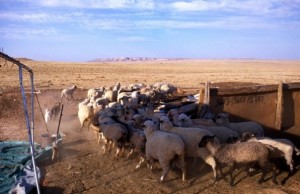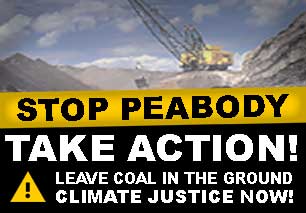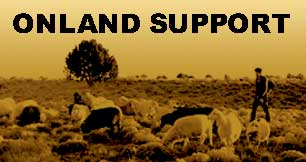Take Action
{tab=Donate}
![]()
Click here for the General Needs List
- Donate. You can make 501 (c) (3) tax-deductible donations here. If you would like to send a tax deductable check via snail mail, please make it out to “Media Island International” and put “BMIS” in the memo line. Media Island International is a 501 (c) (3) non-profit organization registered with the IRS that umbrellas BMIS. If you do don’t want a tax deduction for your donation, you can make a check out to “Black Mesa Indigenous Support” and send it to our PO Box.
- Fundraise. As a grassroots, all-volunteer network, we do not rely on any institutional funding for these support efforts, but instead count on each person’s ingenuity, creativity, and hard work to make active solidarity possible. Host events, hit up non-profits, generous food vendors, and folks in your own networks. BMIS’s grassroots fundraising guidelines can be found here. An article that provides inspiration for grassroots fundraising initiatives is ‘8 Ways to Raise $2,500 in 10 Days’.
- Raise Supplies for the Caravan. Trucks, chainsaws, and tools are integral to the success of the wood & supply runs (also known as caravans). The more trucks we have, the more wood, water and other heavy loads we can transport. Axes, mauls, axe handles, shovels, tools of all kinds, organic food, warm blankets, and did we mention trucks(?) — either to donate to families or to use for the week of the caravan–are greatly needed on the land. For tax deductable donations, see the information above. Each year, we strive to raise enough money through our community connections for gas, specifically for collecting wood and food for host families, and for work projects. Please keep checking the BMIS website for an ongoing list of specific requests by Black Mesa residents.
- Rain Catchment Equipment/Solar Panels/Metal Water Barrels are some of the ongoing requests from the resistance community. Also note that residents seek people with skills at maintaining and repairing rain catchment systems and solar panels.
- Vehicles: The roads of Black Mesa/Big Mountain are unpaved and tend to wear vehicles out quickly. For the resistance communities, especially the elders, reliable transportation is a vital part of helping ensure community connections are maintained, on-land community organizing is possible, and livestock receive proper care. Vehicles also enable trips off of Black Mesa/Big Mountain for healthcare, speaking engagements that help raise awareness about the struggle, and visits with family and friends. If you have a car—most preferably a truck or a four-wheel drive vehicle—that you are willing to donate to a member of the Black Mesa/Big Mountain resistance community, please contact BMIS. BMIS is able to offer an in-kind tax deduction for a donated vehicle.
{tab=Come to Black Mesa}
![]()
- On Land Support is Requested All Year. The resistance communities have put out a request for year round on-land support, human rights observation, and elder care. In Pauline Whitesinger’s words: “I live by myself for the most part. There is a lot of work here with no running water or electricity, herds of sheep, goats, cows and horses. Two cornfields. My children have relocated, mostly because they are ill with diabetes and have to go to dialysis in the cities. They live several hours drive from me in different directions. My grandkids, some of them are very capable helpers, but they have been harassed and chased off by the rangers. So they don’t stay very long… I’m inviting you supporters to come and help me with the work.” Anyone interested in direct on-land support should read our Cultural Sensitivity and Preparedness Guide, and email the application at bottom to BMIS. Contact BMIS to be put in touch with a family or elder. BMIS can help facilitate your stay. On-land support typically involves herding sheep, chopping wood, hauling water, making home or corral repairs, and cooking and cleaning. Elder care specialists, herbalists, massage therapists, and folks with construction skills are encouraged to share your services.
- Permaculture Projects: Contact BMIS if you are interested in supporting a community-led permaculture project that connects youth and elders.
- Black Mesa Herbal Clinic: Contact BMIS if you have skills as an herbalist or elder care provider and would like to join the Black Mesa herbal clinic.
- Organize a Work Party from Your Area: If you’d like to get in touch with groups who regularly plan regional works parties, or would like guidance from the collective email BMIS.
Continued residency by families throughout the Big Mountain of region has a significant role in the intervention of Peabody Coal Company’s plans to desecrate Black Mesa & add to climate chaos. You can visit for several weeks to months or organize a work crew for about a week. Guests are expected to be adequately prepared prior to staying with families on Black Mesa, which is high desert and very remote.
{tab=Letters & Petitions}
![]()
- Call the Navajo Nation Regarding the NNHRC Report on the Relocation. In July 2012, the Navajo Nation Human Rights Commission (NNHRC) released a report on the relocation from Big Mountain/Black Mesa initiated by Public Law 93-531. Titled “The Impact of the Navajo-Hopi Settlement Act of 1974—P.L 93-531,” the report concludes that P.L 93-531 violates human rights, and the specific rights of Indigenous Peoples as detailed in the UN Declaration on the Rights of Indigenous Peoples (UNDRIP), not only because it relocated families to new homesites on a contaminated uranium site, but also because the families remaining on their ancestral homelands, blockading the coal mining and continuing their traditional way of life, are living with daily harassment and intimidation, including livestock impoundments, and surveillance. In this moment of heightened awareness on the environmental damage of extraction, please help maintain the visibility of a 40-year, Indigenous-led struggle against extraction and cultural genocide by calling Navajo Nation officials (below) and reminding them of the significance of the Black Mesa resistance to the larger struggle for climate justice and urging them to follow through on the NNHRC’s recommendations to repeal 93-531 and put a stop to the harassment and intimidation of the resistance communities of Black Mesa/Big Mountain.
Contact:
- Hon. Ben Shelley (NN President): Office of the President and Vice President of the Navajo Nation, PO Box 7440 Window Rock, AZ 86515 Phone: (928) 871-7000
- Hon. Rex Lee Jim (NN Vice President): Office of the President and Vice President of the Navajo Nation, PO Box 7440 Window Rock, AZ 86515 Phone: (928) 871-7000
- Hon. Johnny Naize (NN Council Speaker): Navajo Nation Council – Office of the Speaker P.O. Box 3390 Window Rock, Arizona 86515 Phone: 928-871-7160
- Hon. NN Council Members: Navajo Nation Council – Office of the Speaker P.O. Box 3390 Window Rock, Arizona 86515 Phone: 928-871-7160 ex 7161
- Hon. Herb Yazzie (NN Supreme Court Chief Justice): P.O. Box 520 Window Rock, AZ 86515 Phone: (928) 871-7669
- Email BMIS, Join Our Mailing List and Receive Letters and Petitions Related to the Land
Give back to the Earth! Give to future generations!
{tab=Raise Awareness}
- Challenge Colonialism One of BMIS’s main organizing goals is to highlight anti-colonial education within all the regional meetings leading up to the caravan. In addition to the Cultural Sensitivity Guide, we encourage you to bring articles, films, and other resources to your regional meetings and host discussions that further our collective understanding for transforming colonialism, white supremacy, genocide, and all intersections of oppression. For more, please check out the BMIS collective’s Points Of Unity. Feel free to share with us any resources that you like so that we can build upon this list and strengthen our growing support network.
- Maintain Visibility Keep this 40-year Indigenous-led struggle for human rights and climate stability visible in this moment of global attention on extraction. Invite people from the land to speak at events. Contact BMIS for guidelines on awareness-raising and fundraising, and to discuss movement building and anti-coal campaign work.
- Seek Out Training: for Direct Actions, Anti-Oppression, and Community Organizing that will allow you to participate in actions and projects proposed by elders and on-land resistance communities. Some groups that support this kind of work are: Training for Change, Ruckus Society, Catalyst Project, School of Unity and Liberation, Showing Up for Racial Justice, Peoples’ Institute for Survival and Beyond, The Highlander Center, Dismantling Racism Works, Smart Meme, Anti-Oppression Resource and Training Alliance, and Project South, among others.
- Start “Study and Struggle” Groups in Your Area: Educate yourself and your community on the history of the Black Mesa struggle, current Indigenous movements in your area, and current conversations on decolonization and how it relates to other struggles for racial, environmental, and economic justice. Stayed tuned for calls for action from Black Mesa and engage in local community building and movements for decolonization in your area. See the “Anti-Colonial Resource Page” on our Website.
- Challenge Climate Chaos: Reduce your own carbon footprint while building community power for just transitions from unrenewable to renewable energy with decision making control held by communities who’ve been most impacted by extraction.
- Help with Outreach and Research Contact BMIS if you have research and outreach skills and you’d like to collaborate!
May the resistance of Big Mountain and surrounding communities on Black Mesa always be remembered, and supported!
{/tabs}



